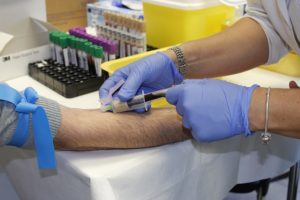As is often the case with mental health diseases, there are common misconceptions and beliefs about bipolar disorder that need to be understood in order to better understand the disorder and those who live with it.
Does it go beyond mood swings?
Everyone experiences their fair share of mood swings as we have good days and bad days and sometimes our emotions simply go out of control. Those diagnosed with bipolar will also experience these mood changes but sometimes experience an extreme of a given mood or emotion. This translates to them sometimes experiencing days, weeks and even months of an emotional high or low which are called manic or depressive episodes. The symptoms vary from person to person as some may only experience manic episodes whilst some many only experience depressive ones.
Manic and depressive episodes
A manic episode goes beyond an individual simply experiencing an extended period of happiness or enthusiasm. During these episodes, the individual can go for days and weeks with little sleep and excessive levels of energy resulting in risky sexual behaviours, taking on excessive tasks and even spending money extravagantly.
However, unlike other people who may experience this, those with dipolar disorder are not having fun but feel driven to complete these tasks regardless of the consequences and as the time goes on they can become irritable and struggle to get along with others.
Depressive episodes are just as extreme but of course in the opposite direction. This, again, goes beyond just feeling down and lacking energy. The person may become demotivated and see little value in the things and people around them, sleep for many hours and begin to lose interest in those around them. This can be as extreme as leading to the person becoming suicidal.
Is it a rare disease or disorder?
In Australia, it is estimated that approximately 1 in 100 people will experience bipolar disorder throughout their lifetime. The average age of onset for the disease is 17.5 years old but it is often not diagnosed until much later with the average gap between onset and diagnoses at 12.5 years.
There are genetic links in bipolar disorder but it is difficult to find a direct correlation at this stage. It is not something that can be caught but is rather developed over a number of years.
Is there a cure for bipolar disorder?
The majority of people who are diagnosed with bipolar disorder live with it for the rest of their lives. However, there is medication that helps those who have it to manage it and live a healthy and happy life. Paying close attention to sleep, nutrition and physical activity have also been proven to improve the wellbeing of those suffering from bipolar disorder.
The majority of individuals diagnosed will have regular meetings with a care team or doctor to continue to discuss symptoms and progress so that you and they are always able to gauge where you are at. This is also designed to help to patient to self-manage.
David Smith was born and raised in Calgary Alberta and loves to share his passion for health and fitness with others. Apart from running his own podcast, which uploads weekly shows that covers current health trends, he spends his time canoeing and backpacking. David recently spent a summer working at the CFIA as a health supplement reviewer. In regards to academics, David studied kinesiology at Guelph University.





